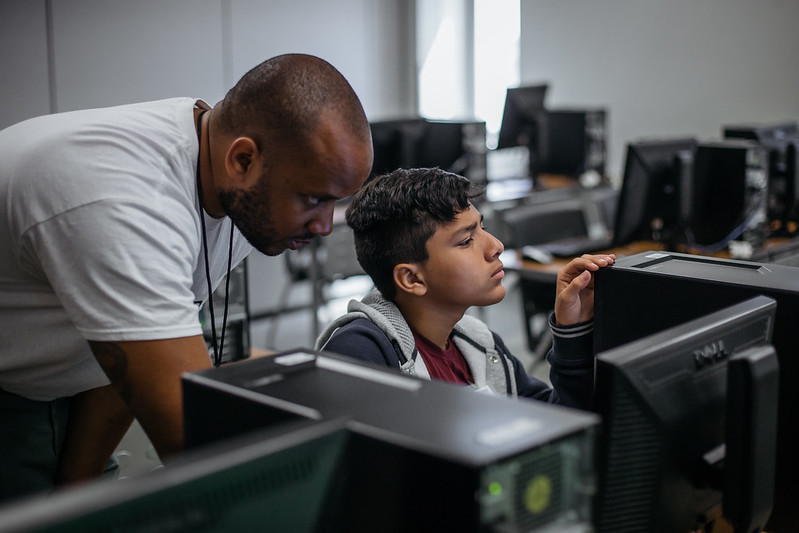
This PhD project aims to improve the teaching of learning of debugging to lower secondary (key stage 3) students. It particularly focuses on debugging in text-based programming languages, as initial experiences of solving errors in these languages can often be challenging, frustrating, and form negative attitudes towards programming.
I began the PhD in October 2022 under the supervision of Dr Sue Sentance. The goal of the project is to develop a teaching aid to improve the teaching of debugging within lower secondary classrooms. I hope to benefit teachers and students alike through the use of this aid.



I’ve conducted lots of in-depth analysis into the log data of 73 students’ attempts at a set of Python debugging exercises to find out how KS3 learners go about when first learning a text-based programming language. These logs display how students’ programs change over time, which we can use to infer the strategies they use when trying to resolve errors.
This is part of a study I conducted in early 2023, for which an academic paper is currently being written. Results will be discussed in an upcoming blog post.
Towards the end of 2023, I interviewed 10 KS3 computing teachers to ask about their experiences of teaching and dealing with debugging in the classroom. I also wanted to gather their observations of how students debug to compare with the student data I’ve collected (described above).
Qualitative analysis of teachers’ interview responses is in progress. By the end of June, I hope to have a better idea of teachers’ perspectives, which will be very helpful in the development of my teaching aid.
In the study where I investigated students’ debugging behaviours, I also gave students a survey about their attitudes and emotions towards debugging. I was interested in how these attitudes link, and if they are any different to students’ more general attitudes towards programming or computing as a subject.
There were a wide range of responses on the survey, indicating a wide range of attitudes. Many of these attitudes were strongly linked. Self-efficacy (the belief that one can successfully perform a task) was linked to many other attitudes and emotions; students who reported lower levels of self-efficacy found debugging less useful and importantly, more frustrating and anxiety-inducing. These results highlight the importance of considering the emotional side of debugging when teaching programming; students are likely to experience many negative feelings, rather than just one.
Gale, L. (2023, November). Towards an Aid for Teaching Effective Debugging to Lower Secondary Students (Doctoral Consortium). In Proceedings of the 23rd Koli Calling International Conference on Computing Education Research (pp. 1-2). https://doi.org/10.1145/3631802.3631833
Gale, L., & Sentance, S. (2023, September). Investigating the attitudes and emotions of K-12 students towards debugging. In Proceedings of the 2023 Conference on United Kingdom & Ireland Computing Education Research (pp. 1-7). (Open-access author copy)